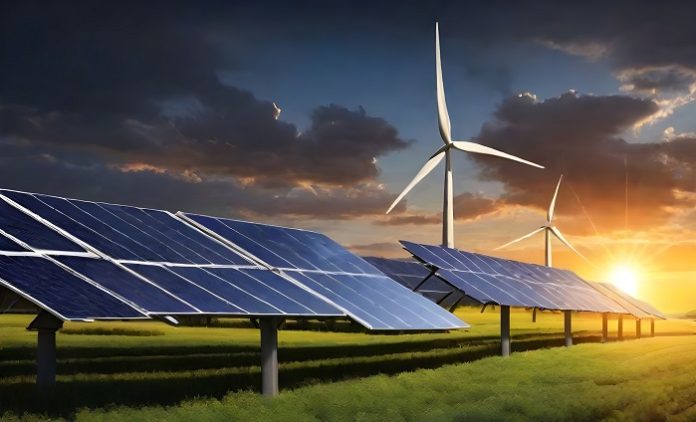UAE has signed an agreement with the government of Rajasthan to explore a major renewable energy project. The initiative aims to develop a sixty GW renewable energy facility, focusing on solar, wind, and hybrid energy sources in Rajasthan’s western region.
Partnership in Renewable Energy Development
The memorandum builds on an existing investment cooperation agreement. The UAE Ministry of Investment and India’s Ministry of New and Renewable Energy (MNRE) originally outlined the development.
Mohamed Hassan Alsuwaidi, UAE Minister of Investment, and Shri Ajitabh Sharma, Principal Secretary of Industries in Rajasthan, officially signed the agreement.
Advanced Technologies for Energy Transition
The project aims to bring best-in-class renewable energy technologies to Rajasthan. The UAE will appoint a developer to oversee this long-term initiative, collaborating closely with Indian authorities.
Mohamed Alsuwaidi highlighted the UAE’s commitment to energy transition, noting Rajasthan’s climate and vast land as ideal for innovative energy solutions. “This project,” he stated, “underscores our commitment to clean energy.”
Strengthening India-UAE Renewable Energy Goals
India remains dedicated to a sustainable energy future, and Rajasthan is central to that goal. Principal Secretary Ajitabh Sharma emphasized, “Partnerships like this are vital to achieving our renewable energy targets”.
He further stated that the UAE and Rajasthan Government collaboration will advance India’s energy transition while serving as a model for renewable energy innovation.
Aligned Clean Energy Targets
The UAE has set ambitious targets, aiming for 50% of its energy from clean sources by 2050. With the UAE’s Energy Strategy 2050, the nation plans to invest over $163 billion and achieve net-zero emissions by 2050.
India also aims to cut its carbon intensity by 45% by 2030, aiming for net-zero emissions by 2070. Currently, 40% of India’s power capacity comes from non-fossil fuels, a milestone reached nine years early.
As reported by gulftoday.ae, through the $2.4 billion National Green Hydrogen Mission, India is positioning itself as a global leader in green hydrogen production by 2030.
































